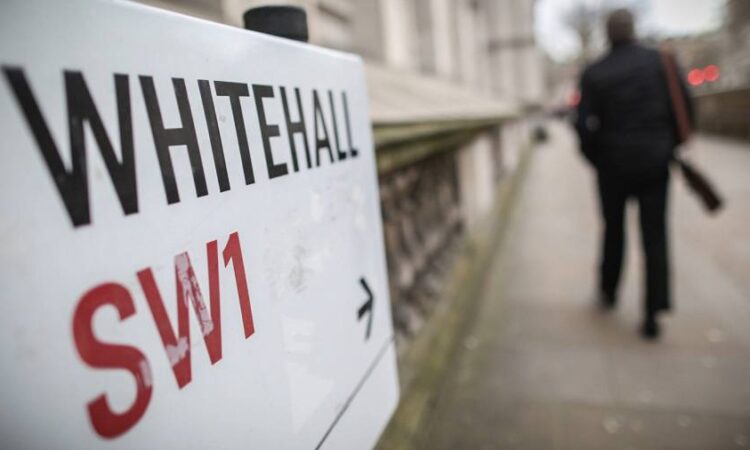
Receive free UK government spending updates
We’ll send you a myFT Daily Digest email rounding up the latest UK government spending news every morning.
The UK government missed its target for channelling a greater proportion of procurement spending into small and medium-sized enterprises last year despite a record outlay of £21bn on goods and services from smaller providers.
The Cabinet Office set the target in 2015 to increase central government procurement spending on SMEs to a third of the total within five years, a deadline that was later extended to 2022.
Total spending on SME procurement rose £1.7bn to £21bn in the 2021-22 fiscal year, according to data to be published by the Cabinet Office on Tuesday.
This equates to 26.9 per cent of total central government procurement spending, up marginally from 26.5 per cent a year earlier. When the target was set in 2015, SMEs accounted for 26 per cent.
Only six government departments reached the 2015 target of awarding one-third of their contracts to smaller providers, defined as companies with fewer than 250 employees, according to the official figures.
The Department for Culture, Media and Sport allocated 48.7 per cent of its direct and indirect spending to SMEs — more than any other department. Indirect spending includes spending that is passed on to SMEs through the supply chains of larger providers.
In an official statement, Cabinet Office minister Jeremy Quin hailed the “record-breaking figures”, pointing out it was the fifth consecutive year of increased spending on smaller businesses but did not address missing the target.
But one Cabinet Office official stressed that the government had recently introduced draft legislation on public procurement, which is designed to make it easier for SMEs to win work.
“We recognise SMEs aren’t getting a fair deal currently. That’s precisely why we introduced the procurement bill which will sweep away the barriers small businesses face,” they said.
Martin McTague, national chair of the Federation of Small Businesses, said the government “may be heralding these figures as a success” but that it had “fallen woefully short” of its own target.
“Failure to contract with a wide range of businesses is bad for the taxpayer,” he said, as he called on ministers to “rediscover the ambition” of using SMEs for 33 per cent of procurement spending. The target must be backed by a coherent plan “or else it’s just window dressing”, he added.
The procurement bill would require government departments and other public bodies to consider SMEs when designing contract tenders to make it easier for smaller providers to compete.
It would give small businesses better visibility of forthcoming contracts so they have more time to prepare and establish a “central platform” so bidders can see the work available in each area.
It will also reduce insurance costs before a supplier has bid for a contract and strengthen prompt payment rules, forcing public sector organisations to pay companies within 30 days.






